5 Books that Taught me How to Age Better
“What is a normal goal for a young person becomes a neurotic hindrance in old age.” Carl Jung
It was July, we were hiking up to the third floor of my favorite bookstore, Powell’s City of Books in the old Pearl district of Portland. Picture a labyrinth of wall-to-wall books the size of three grocery stores. People are selling books, buying books, and getting lost searching for just the right book. If you love books, you come to Powell’s to get lost.
My partner was brisking skipping up the old wooden staircase, humming to herself. Me, not so much. The day previous I ran my first marathon in over 15 years and was dragging what used to be my legs up one painful step at a time.
“Hi Amanda,” I said, sneaking a peak at her oh-so-Portland hand-colored name badge. “What have you got in aging?” Strange, I thought, I’ve never asked that question before - it felt weird, like saying bespoke or diaspora for the first time.
“Hmmm…” Amanda replied, peering at me like she was counting liver spots. “Do you mean, like, getting old?” Pause. “Yeah, uh, that’s it - getting old,” I replied.
Following Amanda’s directions we negotiated to a narrow rack of books squeezed between a wall of books with Yoga in their titles and a double-wide rack of books on meditation. Aging was obviously not a big seller. And that’s weird.
There are close to eight billion people in the world and we all get older. It doesn’t matter if you start your day with a meal of rice, corn, bread, or Cheerios, or practice intermittent fasting - we all age. Given the 100% participation, I would have guessed that authors were throwing themselves at the genre. I think that’s about to change.
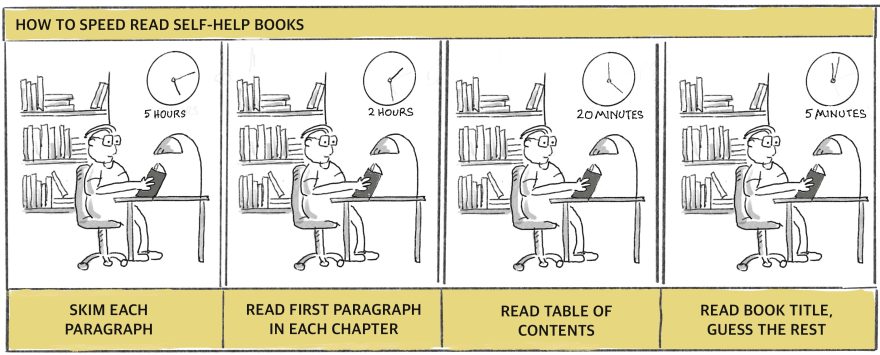
Here are my favorite books on aging I read last year (Amanda found some of them.)
Ikigai- the Japanese secret to a long and happy life by Hector Garcia and Francesc Miralles
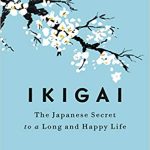
If you read Dan Buettner’s Blue Zones, documenting the world’s longest-living populations, Ikigai (Ikigai means the reason we get up in the morning) is required reading. Garcia and Miralles introduce you to the traditional lifestyle of Okinawa (one of the five Blue Zones) while blending in the wisdom of Frankl, Einstein, Csikszentmihalyi, Hemingway, Buddha, and the Stoics. I reread Ikigai every year, just because it makes me feel better knowing that some things never change. As the Okinawan centenarians are fond of saying, ichi-go, ichi-e (this moment exists only now and won’t come again.)
Younger Next Year- live strong, fit, and sexy-until you’re 80 and beyond by Chris Crowley and Henry Lodge, MD
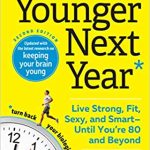
This is a great primer for anyone aspiring to keep their golf game longer or hit the slopes with their grandkids. If YNY was a novel, the plot would be to adopt a use-it-or-lose-it attitude with daily activity and avoid the lazy-boy life that leads to physical and mental deterioration. Crowley’s father-like advice “have a diet of good stimuli: exercise, decent sleep, rational diet, love, and play” is matched chapter-by-chapter with Lodge’s more research-based tone “It turns out, that 70% of American aging is not real aging. It’s just decay. It’s rot from the stuff that we do.”
Four Thousand Weeks - time management for mortals by Oliver Burkeman
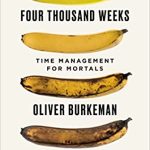
“Your experience of life,” writes Burkeman in his brilliantly meditative book Four thousand weeks (the title refers to our average life span) “is nothing more than the sum of everything to which you pay attention.” For a productivity junkie like me, this was a refreshingly original approach to time management that promotes leisure “Idleness isn’t merely forgivable, it’s practically an obligation.”, avoidance strategies, and what Burkeman coined as “sober joy.” Five stars.
From Strength to Strength- finding success, happiness, and deep purpose in the second half of life by Arthur C. Brooks
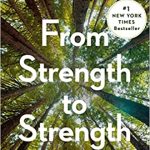
Strength to Strength is about aging, death, reinvention, purpose, and how to avoid, what Brooks calls the ‘striver’s curse’ - a denial response to the inevitable decline life delivers. “Death is the most normal, natural thing in life,” writes Brooks, “and yet we are amazingly adroit at acting as if it were abnormal and a BIG SURPRISE.” Brooks blends research (his day job is as a professor at Harvard) with Eastern beliefs (he refers to the Dali Lama as a friend), musical history, theology, and contemporary news and trends. Recently I gave this a second read and was glad I did. This is a good companion read to hotelier-turned-mentor Chip Conley’s Wisdom at Work.
Lifespan - why we age-and why we don’t have to by David Sinclair and Matthrew LaPlante
Lifespan- why we age-and why we don’t have to by David Sinclair and Matthrew LaPlante
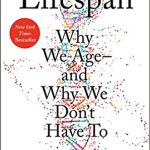
Sinclair is a bona fide genius, serial entrepreneur, and more recently, darling of the anti-aging research movement. He’s also adamant that ‘aging’ is a disease and should be treated as one. “Effective longevity drugs would cost pennies on the dollar,” he writes, “compared to the cost of treating diseases they could prevent.” This is a very readable introduction to the science of aging (why it happens) and emerging research on how to slow it down. A very accessible and entertaining primer is the free eight-episode podcast series (by the same name) Sinclair and his co-author LaPlante (who does a brilliant job of deciphering Sinclair’s scientific jargon) released three years after writing the book.
If you got this far, you might also like these posts –
The bright side of my aging brain
Small Wins - Why Little Steps are the Path to Big Rewards
Keynotes and workshops by Hugh Culver


